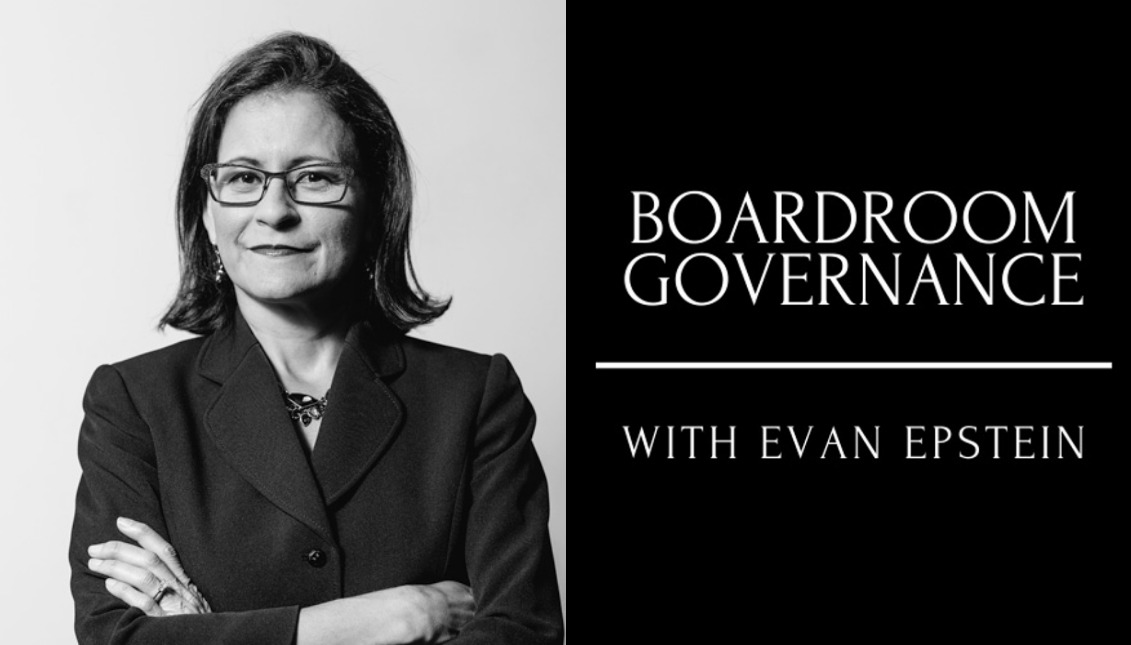
How LCDA Helped Get California Legislation Passed
LCDA CEO Esther Aguilera sat down for a podcast where she explained LCDA’s role in getting SB 979 passed in California.
When it comes to diversity in leadership, California is especially bad, but a new law aims to fix that. Despite Latinos representing California’s population’s plurality at 44%, they represent less than 3% of California-based publicly-traded company boards.
That shocking statistic was made public earlier this year by the Latino Corporate Directors Association (LCDA), an organization that since 2016 has been advocating and working as a resource to increase the number of U.S. Latinos on corporate boards.
The LCDA released eye-popping numbers about corporate board diversity — or more accurately, a lack of corporate board diversity — in that state, founding that of 662 publicly traded companies based in California, 233 were all white.
Esther Aguilera is the Chief Executive Officer (CEO) at LCDA. She recently appeared on Boardroom Governance with Evan Epstein, a podcast targeting corporate board members, to talk about how her Association helped to pass AB 979.
Epstein asked Aguilera about California’s lack of board diversity, AB 979, and a previous California law SB 826, California’s attempts to fix racial and gender diversity issues by setting quotas.
Aguilera noted that SB 826 had some success.
“Today, all companies in California — except maybe five — have added a woman, at least one woman, and some have added more than one woman.”
But primarily, women added to California boards were white.
“However, of the 511 seats filled by women on California boards since the bill became law, only 17 board seats are held by US Latinas, according to LCDA’S analysis. Latinas represent the lowest number of any minority group, in a state where the Latin population is more than 39%, and rising,” an article in Fair Play Talks from March 2020 found.
RELATED CONTENT
“White women make up the largest number of board appointments at 77.9%, followed by Asian women at 11.5% and African American women at 5.3%. The Asian and African American population in California is 15.3% and 6.5%, respectively.”
“You have to be intentional if you are going to be inclusive and include women of color,” Aguilera told Epstein. “We took a look at companies in California companies and found that only 13% of California companies had a single Latino or Latina on the board- the percentage of Latinos on the board is less than 3% in the state. California is far behind. It’s got the largest compared to nationally, so you would think they’d be two to three times the national numbers, but they’re not.”
SB 979 would fix this problem.
“This bill would require, no later than the close of the 2021 calendar year, such a corporation to have a minimum of one director from an underrepresented community, as defined,” the text of the bill reads. “The bill would require, no later than the close of the 2022 calendar year, such a corporation with more than four but fewer than nine directors to have a minimum of 2 directors from underrepresented communities, and such a corporation with nine or more directors to have a minimum of 3 directors from underrepresented communities.”
The research, Aguilera explained, came at a fortuitous time. As LCDA released data on the lack of board diversity in California, State Senator Christopher Holden began his push to get SB 979 through the California legislature, and he used LCDA’s information to sell other lawmakers on the need for the legislation.
California Governor Gavin Newsom signed SB 979 into law on September 30, 2020.









LEAVE A COMMENT: